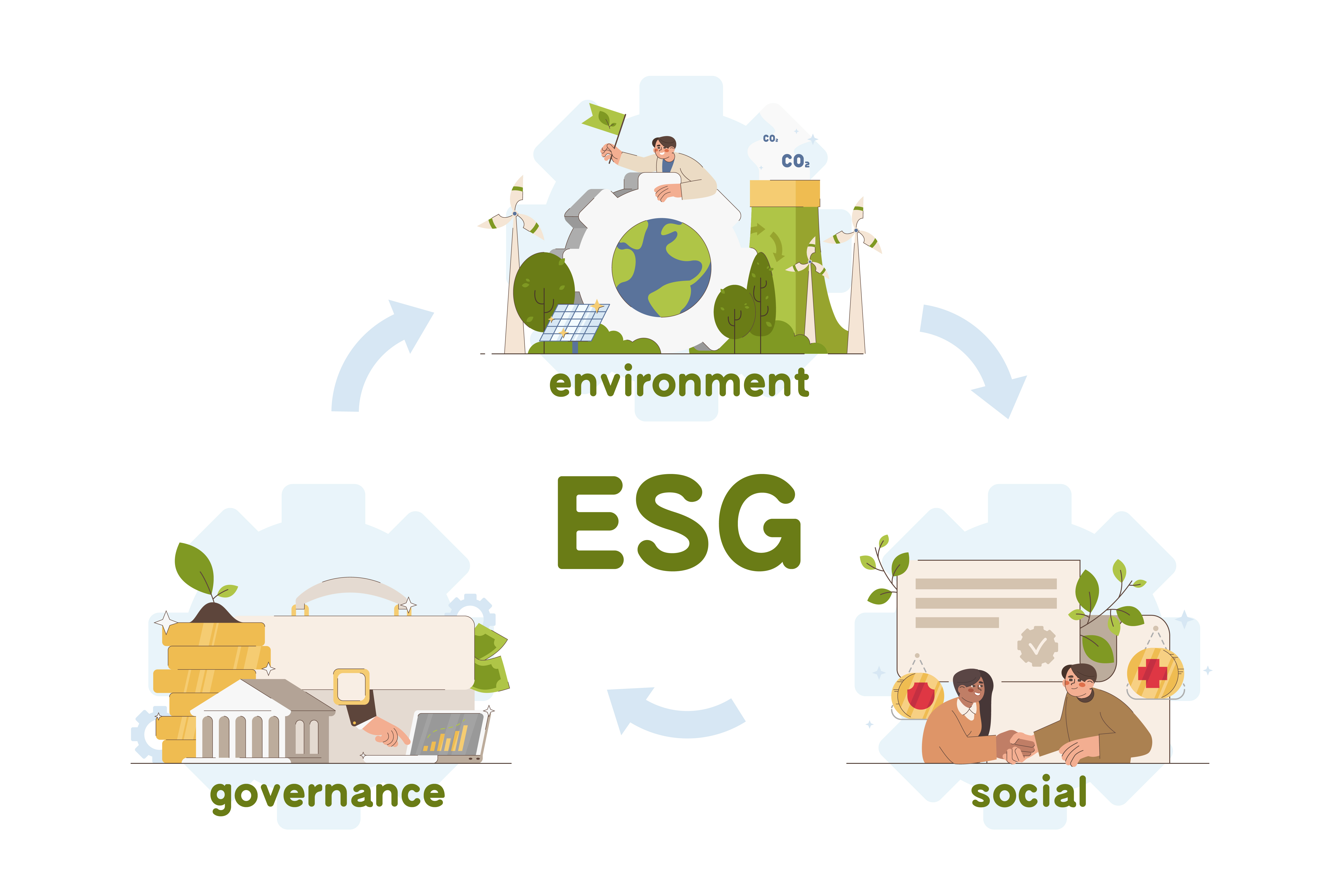The issue of sustainability within corporations has continued to evolve, particularly over the past four decades, as international attention toward Environmental, Social,and Governance (ESG) matters has intensified. The ESG journey reflects the global evolution of corporate responsibility—from simple philanthropy to a structured sustainability framework that has reshaped business paradigms in the21st century. ESG is the result of a collaborative evolution among the power of narratives driven by society, academia, regulators, capital markets, and the business world.
Corporate motivations for fulfilling sustainability responsibilities vary widely: ranging from optimizing profit, promoting ethical and moral practices, fostering innovation for more competitive products, responding to increasingly complex regulations,managing risks to avoid failure, seizing new funding opportunities, to branding to appear better or superficial. Among these, the existence of the benefits of implementing ESG is more widely recognized by companies that truly implement sustainability in depth through ESG integration in their operations. These companies view ESG not merely as a tool for managing risks or crises, but as a business opportunity (Ditlev-Simonsen, 2022).
In many practices,companies often face significant challenges in integrating ESG. These include ensuring top management engagement, precisely identifying material impacts through stakeholder communication, formulating measurable commitments and work plans as well as conducting monitoring, evaluation, and reporting. In short,corporate sustainability reporting should be understood as an integrated process, from the initial stages to disclosure to the public. This is crucial to understand so that ESG implementation does not fall into superficial practices that actually put companies at greater risk, such as the green washing trap. Rather than demonstrating sustainability performance, this exposes companies to risks they are unaware of and results in the collapse of public credibility due to invalid sustainability claims. It is noteworthy that the company's value before the 1990s was largely influenced by tangible assets. As time has progressed, company value is now largely influenced by intangible assets such as business concepts, reputation (goodwill), intellectual capital,patents, brands, and so on. Currently, intangible assets generally contribute more than 88% to the average value of a business. Reputation is a significant portion of this intangible value (Juetten, 2014).
Then, how should ESG be properly formulated? This question is frequently raised by companies with a genuine commitment to embedding ESG risks into their business models. These companies not only manage risks but also seek to transform risks into value and tools for identifying future business opportunities. In general, they are not just fulfilling the reporting requirements that are being implemented by many regulators, for example, financial services authorities, certification bodies,or stock exchange authorities. Furthermore, they place sustainability instruments as one of the important considerations in decision-making for their business strategies and changes gradually, according to developments. This underlies the belief that one of the essential prerequisites for implementing sustainability is an initiative that originates or is anchored in top management. This ensures that sustainability is embedded in the company's operational DNA and serves as input for strategic decision-making for its continued growth.
The implementation of sustainability by business actors is currently supported by various global frameworks—which, although continuing to develop, can be referred to—such as the Global Reporting Initiative (GRI) and the International Sustainability Standards Board (ISSB) with its IFRS S1 and S2 standards, etc. Business owner scan adopt the most relevant to their needs, using them as references to determine material risks for the company, set measurable targets and work plans, integrate sustainability into operations, monitor and evaluate the company’s performance, and report sustainability outcomes to the public.
In light of these developments, sustainability is no longer an option but a decisive factor for business success in the 21st century. This has long been emphasized by the UN Global Compact and global investors through the slogan “who cares wins”. In the future, corporate commitment to ESG will be a key driver of long-term company success. Importantly, companies need not navigate sustainability integration alone; today, a broad range of stakeholders are actively engaged in sustainability issues and are open to collaboration. (HS)


